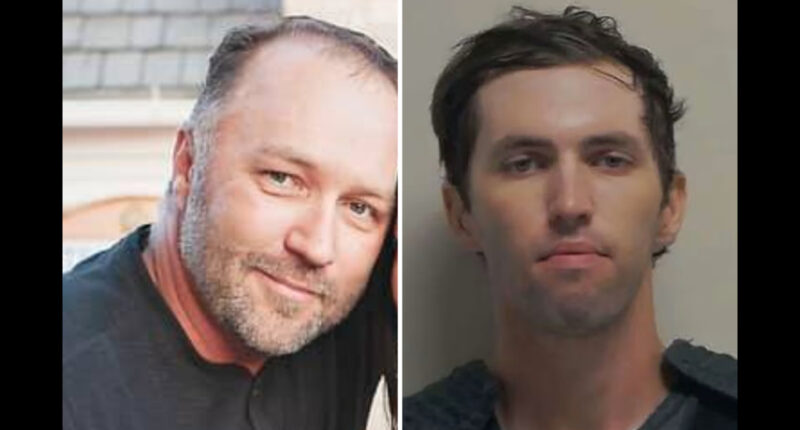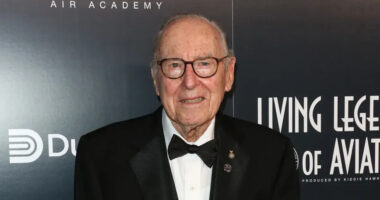The assassination of conservative commentator Charlie Kirk has sent shockwaves through the political landscape. On September 10, Kirk was fatally shot from a distance of about 200 yards while speaking at Utah Valley University. Authorities quickly identified 22-year-old Tyler Robinson as the prime suspect, linking him to the crime through DNA evidence from the scene and digital footprints. Robinson, a local resident with no prior criminal record, allegedly acted alone in what prosecutors describe as a targeted attack motivated by ideological differences.
Robinson’s capture unfolded dramatically just days after the shooting, thanks to an unexpected tip from within his own family. His father, Matt Robinson, upon seeing the circulated suspect photos on the news, recognized Tyler and confronted him. The elder Robinson urged his son to surrender to authorities, leading to Robinson’s peaceful arrest on September 11 at a family home in Provo, Utah. This familial intervention halted a nationwide manhunt and raised immediate questions about the role of loved ones in high-stakes investigations.
The Path to Surrender
The FBI is offering a reward of up to $100,000 for information leading to the identification and arrest of the individual(s) responsible for the murder of Charlie Kirk on September 10, 2025, at Utah Valley University in Orem, Utah. Contact 1-800-CALL-FBI and submit photos and… pic.twitter.com/ReuzFhdm0H
— FBI (@FBI) September 11, 2025
The FBI had launched an aggressive pursuit following the shooting, distributing images of the suspect and emphasizing the gravity of the crime. Private donors, including prominent figures in conservative circles, boosted the initial $100,000 federal reward to over $1.15 million, hoping to expedite leads. Robinson’s dad, a longtime resident of the area, came forward after spotting his son’s likeness in the media alerts. He reportedly contacted law enforcement directly, providing confirmation that expedited the arrest without further violence.
A number of people have reached out and/or posted expressing concern that Tyler Robinson’s father may collect a $1.2m reward for turning in his son, which inspires a few thoughts.
First, in order for rewards to be effective in finding criminals, the rewards need to be paid even…
— Bill Ackman (@BillAckman) September 13, 2025
In the hours leading up to the surrender, Robinson had been in communication with friends via group chats, where he even joked about a “doppelganger” being responsible. However, the father’s decisive action cut through the evasion tactics. Robinson was taken into custody without incident and placed under special watch in a Utah County jail, where he faces potential aggravated murder charges that could carry the death penalty. As of September 16, 2025, investigations continue, with authorities examining Robinson’s online activity for deeper insights into his motives.
You Might Like: What Did Hannah Einbinder Say in Her Emmy Speech?
Debate Surrounding the Reward
The reward money quickly became a focal point of public discourse, centering on whether Tyler’s dad, Matt Robinson, should claim the substantial sum for his tip. Some online commentators argued that the father’s cooperation deserved compensation, viewing it as a tough but necessary step in justice. Others questioned the ethics of a parent profiting from turning in their child, sparking heated debates on social media platforms like Reddit and X. The total pot, amassed from federal funds and private contributions aimed at honoring Kirk’s legacy, amplified the controversy.
🚨BREAKING: Tyler Robinson’s Father Rejects $1.15 Million Reward, Demands It Go to Kirk Family⬇️ pic.twitter.com/vN1BLFDfrV
— 𝒜𝒹♡𝓇𝒶𝒷𝓁𝑒𝒟𝑒𝓅𝓁🌸𝓇𝒶𝒷𝓁𝑒𝟤 (@Pwrfulwoman2) September 15, 2025
In a recent development reported by Fan Hub on September 15, 2025, Tyler Robinson’s father apparently rejected the $1.15 million reward, stating he wanted the funds redirected to Kirk’s family to support them during their grief. However, this story remains unconfirmed for now.
Prosecutors, meanwhile, are preparing formal charges this week, while the FBI continues to sift through evidence. The case remains a stark reminder of how personal ties can intersect with national tragedies, leaving lingering questions about accountability and compassion in the face of crime.









